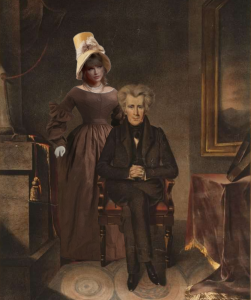Please don’t think this was anything special.
This phrase, used so eloquently in “Choke” to punctuate a mid-flight hookup, doubles as a one-line summation of the movie itself. Clark Gregg’s film adaptation of Chuck Palahniuk’s subversive 2001 novel doesn’t do a single thing to improve on the print version.
Instead, it relies on a haphazard mix of 30-year-old boy pathos and a nihilistic disregard for personal responsibility and the feelings of others.
Victor Mancini (Sam Rockwell, “The Hitchhiker’s Guide to The Galaxy”) pays his bills by intentionally choking in restaurants, draining sympathy money out of the people who save him (he goes for the rich-looking customers).
He gets his rocks off with any woman he can anywhere he can, from sex addict support groups to the colonial re-enactment park where he toils under his method-acting boss, Charlie (multi-tasking director Gregg, TV’s “The New Adventures of Old Christine”).
Lest you think our protagonist is devoid of any emotional qualities, Victor uses the con money to keep his ailing mother Ida (Anjelica Huston, “The Royal Tenenbaums”) in a nursing home.
When he gets past the nurses he’s conquered – which is most of them (as if those places aren’t awkward enough already) – the vulnerability starts to show. Ida always thinks he’s someone else, and it absolutely kills Victor to play along as if he’s the lawyer or her old friend.
A veteran of quirky films, Huston actually plays two contrasting versions of the same character: the dementia-stricken mother in her twilight years, and, in flashbacks, the controlling, rebellious matriarch with an affinity for stickin’ it to the Man.
With her jet-black clothing and pointed facial features, Huston as Ida’s younger self looks icy even when she smiles.
Which is proof Ida looks down on others, always putting herself first. Through abrupt flashbacks, she is shown carting a young Victor around the country in a school bus to teach him tricks and hustles, leaving no time for the little guy to make friends.
All the while, she’s taken on the role of activist without regard for her son’s safety – Victor got attacked by a lynx when breaking the helpless animals out of the zoo. As a real-life activist, the young Ida is the role Huston was born to play.
All this leads back to Victor, explaining why he’s incapable of any lasting emotional attachment. Things look up when in the midst of his mother’s sickness, he meets soft-spoken nurse Paige Marshall (Kelly MacDonald, “No Country For Old Men”).
After initially propositioning her, the two form a connection over trying to heal Victor’s mother. His feelings for Paige send his mind spinning, and the road to romance is littered with his emotional baggage.
Instead of making a genuine effort at doing something about his life, Victor simply shrugs off his actions, lazily throwing a thumb in mommy’s direction and saying we’re only as good as we’re made to be.
Not that it isn’t fun to watch him pointing the finger. Shaggy and disheveled isn’t how this faithful Palahniuk reader would have pictured Victor, but Rockwell’s character is about as likeable as sex-crazed, bummy screw-ups get.
His dry wit and insouciant mannerisms make Victor a riot to watch in the same way Billy Bob Thornton in “Bad Santa” and Bobcat Goldthwait in “Shakes The Clown” were. It’s working-class humanity filtered through strip clubs and f-bombs.
Gregg is superb as well – he makes his Charlie sniveling and sensational – but things are shaky when he’s behind the camera.
The screenplay originates from Palahniuk, and a darkly hilarious story from the man who wrote “Fight Club” is as sure a thing as good pizza or birthday cards.
Unfortunately, after extensive planning of how to portray the complex themes of the book, Gregg still doesn’t know precisely how to pull the whole thing off. Every time a moment of weakness (read: un-ironic emotion) threatens to bowl over the jokes, Gregg has to treat it like The Joker’s smile, ripping something natural into a grotesque mutation.
The man even finds a way to make a major character’s death hilarious with nothing but chocolate pudding.
So it is perhaps too appropriate that “Choke” feels a lot like Victor’s compulsive, emotionless encounters, forgoing true emotion for something juicier. Think of it as a 90-minute hook-up: the potential for something real is right there all along, but ultimately the payoff is short-term and everyone ends up feeling used.
Grade: C




